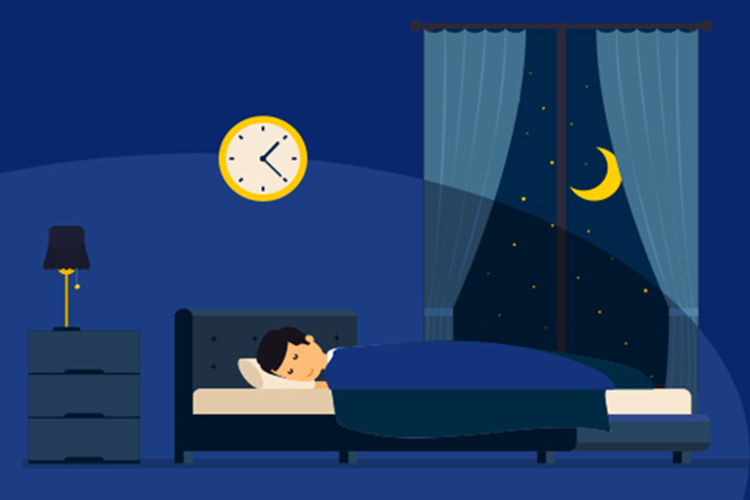Sleep is a recurring state of mind distinguished by altered consciousness, inhibited sensory activity, reduced muscle activity, and inhibition of almost all voluntary muscles during rapid eye movement (REM) sleep, and fewer interactions with surroundings.
We will discuss sleep deprivation and how it’s impossible to enjoy optimal dental and overall health when you are a poor sleeper.
60% of people report problems with sleep quality and quantity. These results are chronic inflammation, insulin resistance, stubborn fat, poor judgment, weaker immune systems, cognitive decline, and memory loss. In addition, many dental conditions, such as gum disease, are influenced by general inflammation in the body; hence there is a connection with sleep patterns.

It’s remarkable how destructive sleep deprivation is, and It’s essential to understand the dental implications. On Jan 1st, people make resolutions, like losing weight, stopping smoking, and exercising. Rarely is sleeping more a resolution. Any time your body is not sleeping well, it starts to break down. The awake state is catabolic, and the asleep state is reparative and anabolic.
Everything we do in dentistry stresses the body, such as doing a hygiene cleaning or performing a root canal. There is a net benefit of good with dental procedures, but they can be an insult to the body from which the body has to heal and bounce back. During the day, your immune system is on standby, but it goes into high gear at night. So anytime the body is not sleeping well, it is not healing. For dental patients to respond well to our treatments, they must be able to heal well. Unfortunately, 70% of patients who are sleep deprived are sabotaging their bodies response to dental treatment and their oral health.

We often ask our patients about the quality and quantity of sleep because patients who are poor sleepers may be poor healers.
In addition to our regular post-operative instructions following dental treatment, we sometimes remind patients to get a good sleep.
Sometimes, people look for esoteric remedies to make them healthy such as fad diets. However, foundational processes like quality sleep are often more effective. For example, many people have fragmented sleep, where they sleep for an hour, get up, and fall back to sleep. When people have interrupted sleep, the “sleep stages” have to start over again. The average adult needs 90 minutes to go through the three REM sleep stages.

https://images.app.goo.gl/uHVPBBxBgo4ve4Vr9
Sleep insomnia is also a problem. It is where the person has no trouble getting into bed but cannot fall asleep. It can result in aging poorly and chronic body inflammation, and they may have difficulty healing after a dental procedure. In addition, chronic inflammation of the body can contribute to conditions involving inflammation of the mouth such as periodontal disease or gingivitis. Our dental treatments, such as hygiene cleanings, are designed to lower the inflammatory burden in the mouth. However, the stronger your overall body is, the more successful dental treatments can be.
Some ways to help sleep better are:
- Use a sleep mask if your room is not dark.
- Don’t turn on the TV in bed.
- Keep your bedroom around 65 degrees.
- Limit eating before bed- digestion requires energy, and the body will spend most of the night trying to digest, leaving you feeling unrested.
- Limit wine before bed- It may help you get to sleep, but they help you stay asleep and encourage hypoglycemia. In addition, it shortens the rem sleep, and people dream less.
- Napping before 3 PM: A 20-30 minute nap before 3 PM equals an hour of solid slumber at night; however, if you nap after 3 PM, it can interfere with your nightly sleep.

Some of the sleep science out of Berkey recommends melatonin supplements for sleep quality to those who are 70 or older. However, In Canada, supplements are not highly regulated. So we must be careful you are getting what your supplement bottle lists.
We hope you have enjoyed this article; thank you for reading it!
Reference:
https://vivalearning.com/member/podcast.asp?x_podcastId=404
- St. Lawrence Dentistry Looks Forward To St. Patrick’s Day! - March 12, 2025
- Understanding Dental X-Rays and Radiation: What You Should Know - January 13, 2025
- Happy New Year from St. Lawrence Dentistry! - December 30, 2024










